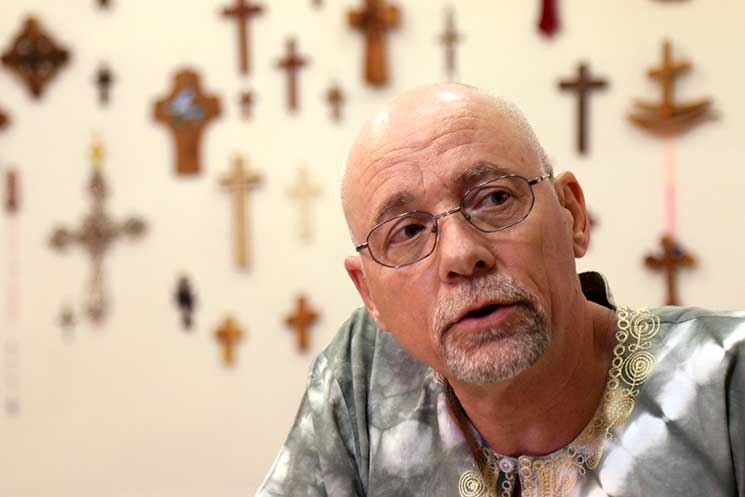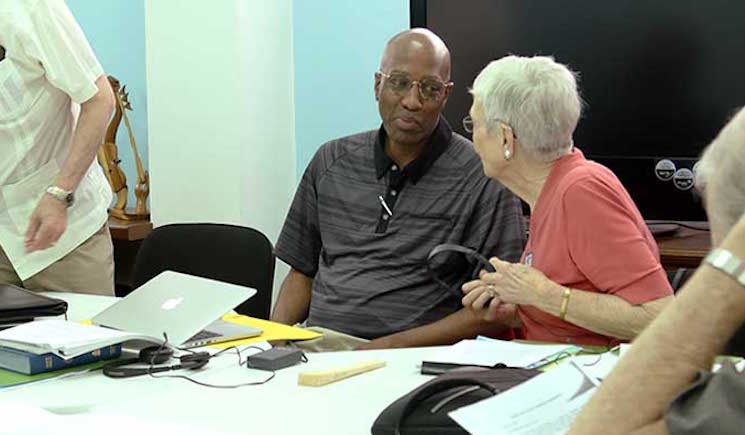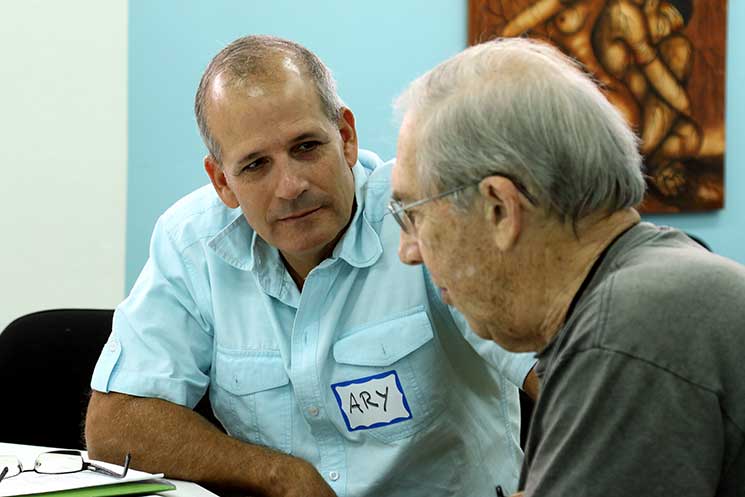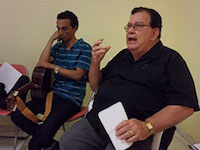“We are partners in hard times but also in good times. What does it mean to be partners in hard times?” began José Luis Casal, director of World Mission, at the opening devotional of a meeting between leaders of the Presbyterian Church (U.S.A.) and La Iglesia Presbiteriana-Reformada en Cuba (IPRC).
The meeting was held the day after J. Herbert Nelson delivered a sermon at First Presbyterian Church Havana during his first trip to Cuba as Stated Clerk of the PC(USA) for a gathering of the IPRC, the Cuba Partners Network, and the PC(USA) World Mission. The parties discussed the renewal of the Mutual Mission Agreement Between the Presbyterian-Reformed Church in Cuba and the Presbyterian Church (U.S.A.) that was first confirmed in 1986, as well as meeting with the U.S. Embassy in Havana, the Office of Religious Issues of the Cuban government, and the Evangelical Theological Seminary of Cuba.
A recommendation to the 222nd General Assembly (2016) of the PC(USA) by the Advisory Committee on Social Witness Policy, in cooperation with the Cuba Partners Network, called for the PC(USA) to celebrate and strengthen the ecclesial relationship and partnership between the PC(USA) and IPRC. It asked the assembly to update the partnership agreement “in light of new hopes and realities as we assess together new opportunities for mutual mission.” The recommendation passed in committee 46-2.

Rev. Carlos Emilio Ham addressing the Stated Clerk at the Evangelical Theological Seminary of Cuba - Photo by Randy Hobson
The intent is to create a new agreement through the Cuba Partners Network by September 2017 and present it at a meeting in Houston based on conversations about goals, theological concerns, and contextual realities that began over the course of two days at the Centro Cristiano de Reflexion y Dialogo.
Drafters hope this allows time to create a more polished document to present to the 223rd General Assembly (2018) of the PC(USA) in St. Louis. Ideally, a 2–3 page first draft would be created by June 2017 and reviewed and edited in August.

J. Herbert Nelson and Pat Metcalf have a discussion during break. Photo by Randy Hobson
Issues involving current U.S. and Cuba political relations were central to the discussion as well as topics related to the history of the existing agreement, race, cultural differences, inclusion, theological interpretation, and mutual accommodation.
Regarding new goals, Ary Fernandez, moderator of the Synod of the IPRC asserted, “context has changed dramatically since the last (1986) agreement in terms of, not only social economic issues, but the dynamics of the two churches.” After learning about one another and reviewing the past relationship, the group established the themes for the new agreement and started formulating a secondary document to act as an ongoing and organic reflection of changing contexts in both countries and churches.

Ary Fernández talks with David Cassie at a morning gathering. - Photo by Randy Hobson
These documents are framed by discussions of what has worked and what has not. “When we think about the effects of (new) tourism, the environment, we need to be thinking about our impact on this country” said the Reverend Pat Metcalf, member of the Cuban Partners Network.
Nelson urged the group to approach the future prayerfully and faithfully as well as asking them to consider the future of ministry in this century and the particular contexts within which each of the denominations are operating in order to become even more effective.
This is a huge time, but it's a great time to be engaged in mission." J. Herbert Nelson, II
The history of PC(USA) involvement in Cuba began long before formation of the independent IPRC in 1963—four years after the Cuban Revolution—when the Presbyterian presence in Cuba was part of the Presbytery of New Jersey. The Presbyterian Historical Society has published more information about this history.
A varied and rich relationship has born the fruits of projects such as the payment of pensions to Cuban pastors—made nearly impossible by the U.S. trade embargo—and the restoration of churches. Aside from practical tasks there has been a true partnership through the inclusion of prophetic Cuban presences at local and national PC(USA) gatherings, inclusion of Cuban voices in the Presbyterian Peacemaking Program, delegations of PC(USA) representatives to Cuba and IPRC representatives to the U.S., representation of both denominations in international organizations such as the World Council of Reformed Churches and the World Council of Churches, and the sharing of resources and outreach programs.

